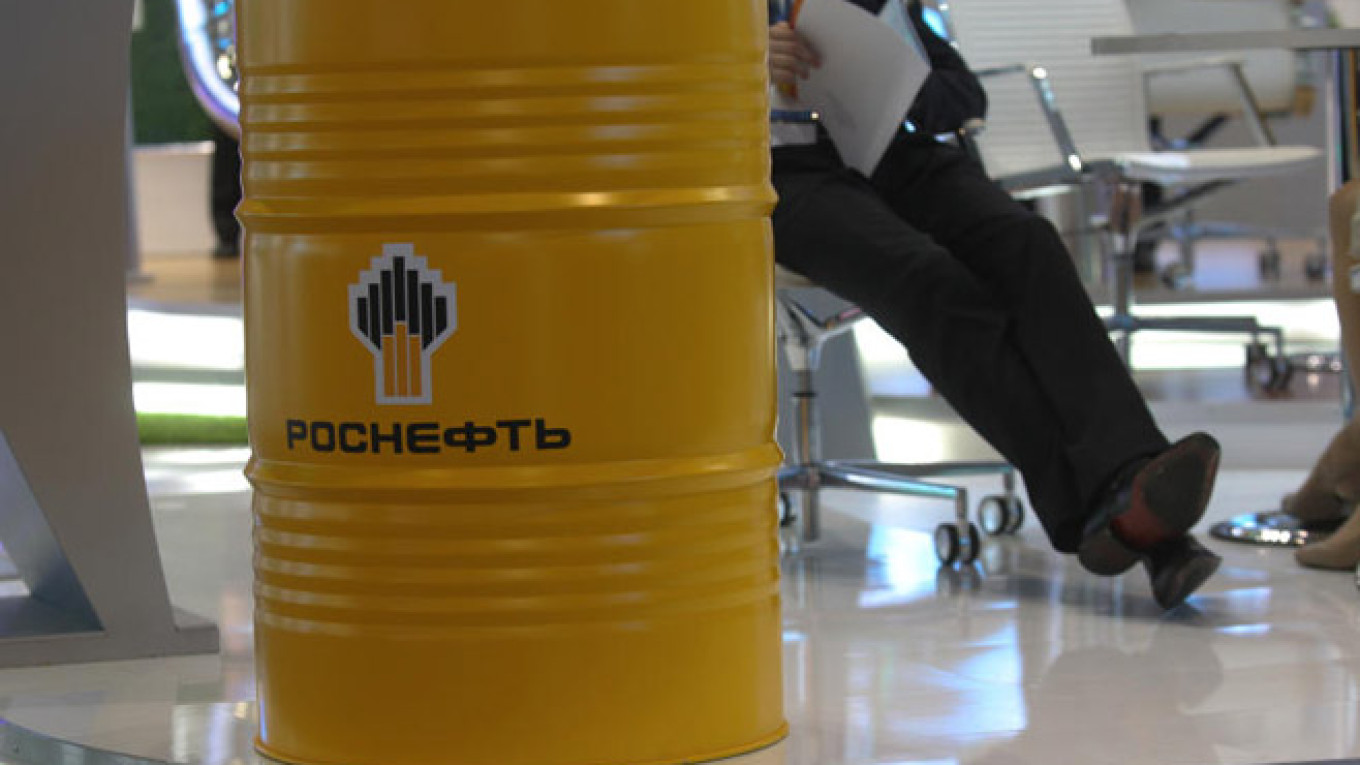State-owned oil major Rosneft has requested more than 2 trillion rubles ($49 billion) from one of Russia's oil-revenue-funded, rainy-day reserves to help it weather Western sanctions, Finance Minster Anton Siluanov told news agency RIA Novosti on Wednesday.
The sum amounts to over half the cash stored in Russia's National Welfare Fund, a sovereign wealth fund that was created as a backstop to Russia's pension system and held 3.2 trillion rubles ($83.2 billion) as of Oct. 10.
Major Russian companies and banks have queued up for access to financial aid from the fund in recent months after Western sanctions on Moscow over Ukraine locked them out of overseas capital markets, leaving many with multi-billion-dollar debts to international lenders that they cannot roll over.
But according to its rules the welfare fund can invest only 60 percent of its reserves, meaning that if Rosneft's application is granted there will be little left for others. There may not even be enough for Rosneft: Hefty sums from the welfare fund have already been earmarked for major infrastructure projects designed to boost Russia's stagnant economy.
Rosneft, which after a breakneck borrowing-aided expansion is Russia's largest oil company, has $20 billion of debts falling due in this quarter and the next, Reuters has cited rating agency Moody's as saying. Aside from hitting the company's access to finance, sanctions have also since last month barred Western companies from working with Rosneft on hard-to-reach oil projects and banned the supply of high-tech equipment.
The price of Brent crude oil has meanwhile slumped from a high of $115 in July to around? $85 this week, though the effect of this is eased for Rosneft by a weakening ruble and a high tax regime that forces the state to bear the brunt of price falls.
The 2 trillion ruble request is 500 billion rubles ($12 billion) more than the company asked for in August, before sanctions were tightened. Ministers then suggested that Rosneft would likely receive a fraction of that amount — around $3.9 billion. Novatek, a privately owned gas company, is also in the running to receive up to $3.9 billion from the welfare fund.
On Wednesday, Energy Minister Alexander Novak said his ministry had approved requests from the two companies, though he did not specify how much would be granted. Next in line to sign off on the paperwork is the Economic Development Ministry.
Novak stressed that the government expected to have its investments eventually returned.
The rush for state aid seems to be infectious: Leonid Fedun, deputy president of Russia's No. 2 oil company, privately owned LUKoil, told news agency Interfax on Wednesday his company would also seek assistance from the welfare fund.
"Given that everyone is applying [for aid], we will too," Fedun was quoted as saying, without specifying how much the company would seek.
LUKoil had previously asked the government to grant it access to unallocated oil fields to mitigate the effect of sanctions.
Contact the authors at p.hobson@imedia.ru and s.skove@imedia.ru
A Message from The Moscow Times:
Dear readers,
We are facing unprecedented challenges. Russia's Prosecutor General's Office has designated The Moscow Times as an "undesirable" organization, criminalizing our work and putting our staff at risk of prosecution. This follows our earlier unjust labeling as a "foreign agent."
These actions are direct attempts to silence independent journalism in Russia. The authorities claim our work "discredits the decisions of the Russian leadership." We see things differently: we strive to provide accurate, unbiased reporting on Russia.
We, the journalists of The Moscow Times, refuse to be silenced. But to continue our work, we need your help.
Your support, no matter how small, makes a world of difference. If you can, please support us monthly starting from just $2. It's quick to set up, and every contribution makes a significant impact.
By supporting The Moscow Times, you're defending open, independent journalism in the face of repression. Thank you for standing with us.
Remind me later.


